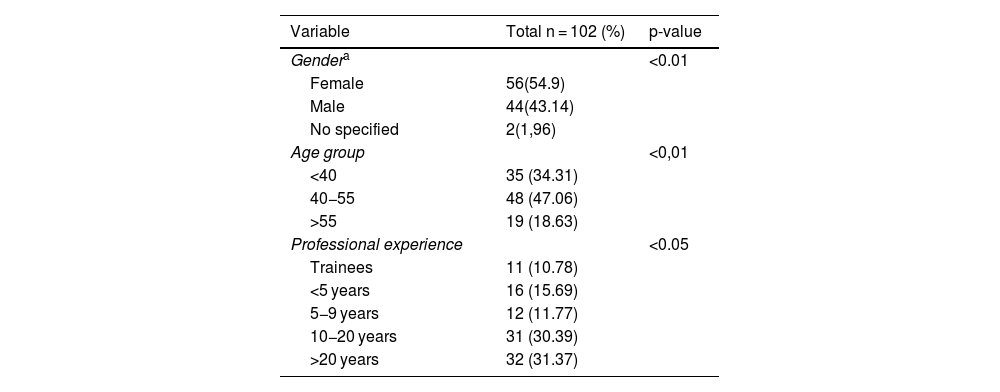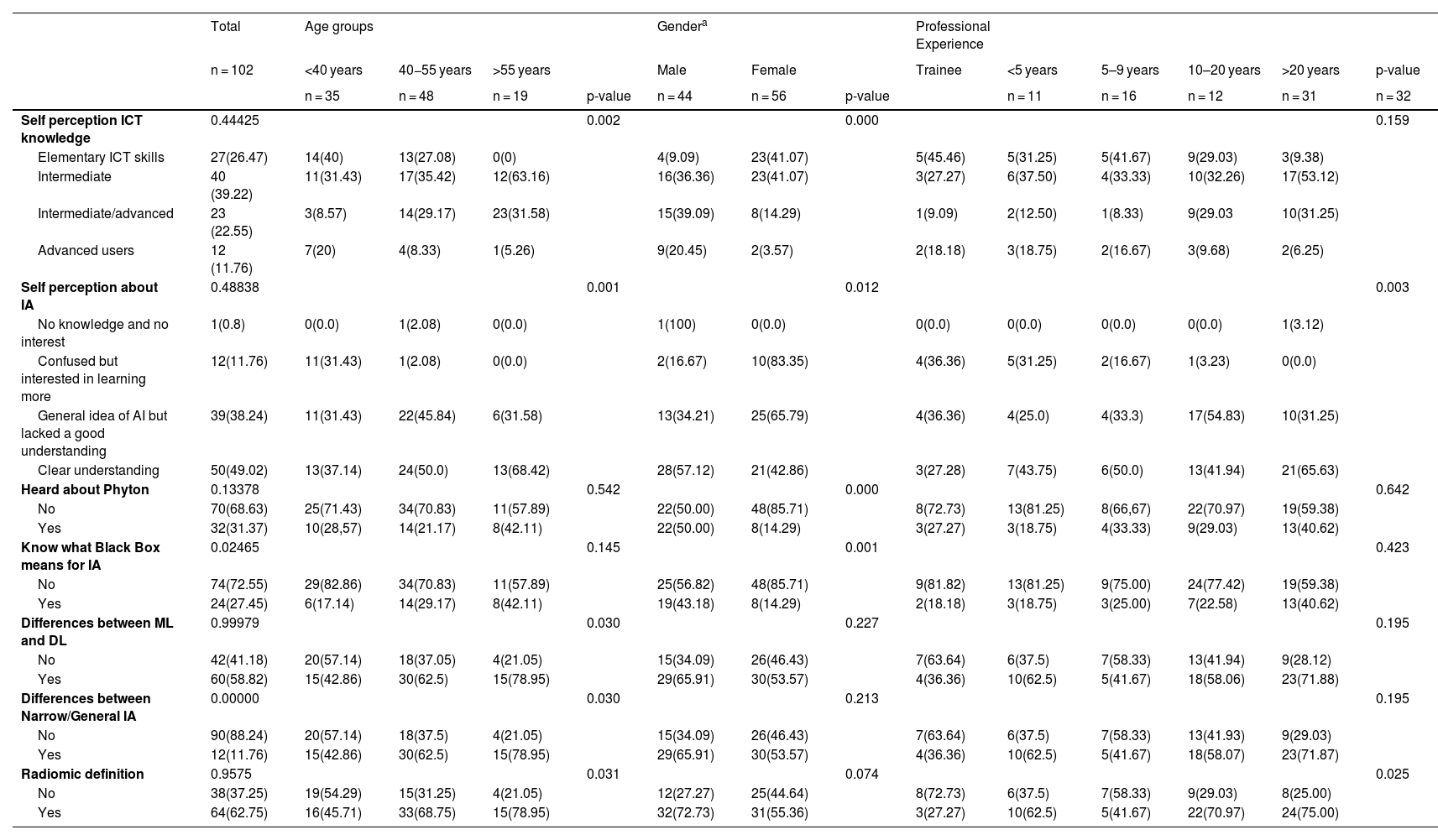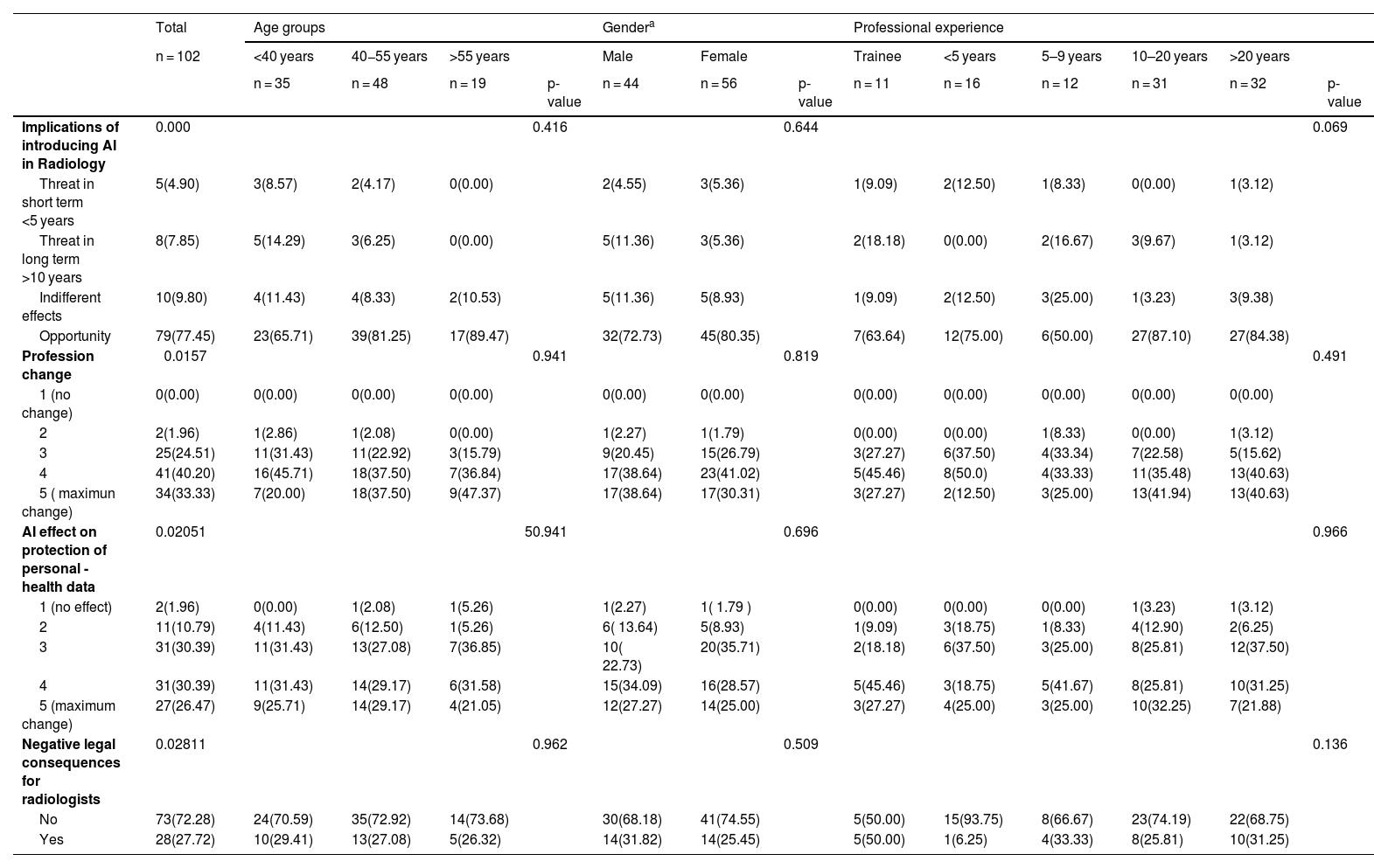The purpose of this study was to investigate perspectives held by radiologists on the use of artificial intelligence (AI) in their day-to-day work and to identify factors limiting its routine implementation.
Materials and methodsSpanish board-certified radiologists and trainees completed an online survey of 21 questions on general information and communications technology (ICT) and AI in radiology. Analysis was carried out for the subgroups of gender, age, and professional experience. Associations with a p-value <0.05 were considered statistically significant.
ResultsA total of 102 radiologists and trainees completed the questionnaire. No se observaron diferencias estadísticas significativas entre los grupos de sexo. A significant difference was detected in ICT and AI knowledge between age groups, with participants under 40 and those between 40 and 55 years old demonstrating better ICT knowledge (p < 0.01). The survey results revealed that 77.4% of participants believed that AI represents an opportunity for the radiology profession in the future, while 9.8% believed it would have no impact. Three main practical application areas for AI in radiology were proposed: in screening (23.36%), in image interpretation and reporting (21.17%), and in the requesting of imaging and patient scheduling (14.6%). The biggest concern among the surveyed population was the potential increase in workload.
ConclusionsA positive attitude toward AI was observed among Spanish radiologists, with the majority believing that AI could offer opportunities for the radiology profession in the near future. AI training programmes may further improve its acceptance among professionals.
El propósito de este estudio fue investigar el punto de vista de los radiólogos sobre el uso de la inteligencia artificial (IA) en su práctica diaria e identificar los factores que limitan su implementación sistemática.
Materiales y métodosSe realizó una encuesta por Internet entre radiólogos y residentes de radiología españoles, con 21 preguntas sobre los conocimientos generales de las tecnologías de la información y la comunicación (TIC) y de la IA en radiología. Se realizaron análisis de subgrupos por sexo, edad y experiencia profesional. Las asociaciones con un valor p < 0,05 se consideraron significativas.
ResultadosUn total de 102 radiólogos y residentes respondieron al cuestionario. No se observaron diferencias estadísticas significativas entre los grupos de edad o género. Se detectó una diferencia significativa en el conocimiento de las TIC y la IA entre los grupos de edad, siendo los participantes menores de 40 años y los de entre 40 y 55 años los que tenían un mejor conocimiento de las TIC (p < 0,01). Los resultados de la encuesta mostraron que el 77,45% de los participantes creía que la IA representa una oportunidad para la profesión radiológica en el futuro, mientras que el 9,80% creía que no tendrá ningún impacto. Se sugirieron tres áreas principales de aplicación práctica de la AI en radiología: en el cribado (23,36%), en la interpretación de imágenes y la elaboración de informes (21,17%) y en la solicitud de las pruebas de imagen y la programación de pacientes (14,60%). La mayor preocupación entre la población encuestada era el posible aumento de la carga de trabajo.
ConclusionesSe encontró una actitud positiva entre los radiólogos españoles hacia la IA, donde la mayoría de los encuestados contestó que la IA supondría una oportunidad para la profesión en un futuro próximo. La implementación de programas de formación en AI podría mejorar su aceptación entre los profesionales.










